Wix vs WordPress: Choosing The Right Platform
- By
- Last updated:
- 13 Comments
Wix vs WordPress — which is the better website platform? If you’re planning to build yourself a website, this question is very likely something you’re pondering right now.
And the question actually isn’t all that easy to answer, since Wix and WordPress are both really quite good systems. WordPress is the veteran player that’s been in the game for years now, dominating the popularity charts, while Wix has been making some impressive strides lately with its new user interface and addition of various powerful features.
In this guide, I’m going to compare Wix vs WordPress, and cover the main differences between them, as well as their pros and cons. Then, I’ll point out which is likely the better choice for your needs.
Table of Contents
Wix vs WordPress in a Nutshell
What Is Wix?
- In a nutshell, Wix is an all-in-one platform that allows you to build a website from scratch, on your own, with no coding skills required. It’s marketed as a tool that’s ideal for beginners, and there’s 24/7 customer support.
- Price: $0 to $49 a month, depending on the plan you choose. A free domain name is included for the first year on all paid plans (for free sites, a subdomain is included, such as
YourSite.wixsite.com).
Wix is an online platform where you can build your website and then make it available for the world to see.
Getting on Wix is very straightforward: All you have to do is go to the main Wix website, sign up for an account, and then let Wix take you through all of the steps — from zero to a beautiful and functional website (even including an eCommerce module if you need it).
How Wix works its magic is something users appreciate a lot, and, at the time of writing, the platform had well over 190 million people using it.
Wix can handle all types of standard websites, such as business sites, portfolios, blogs, websites for personal projects, eCommerce stores and more.
What Is WordPress?
Before we begin, WordPress comes in two flavors. The one we’re comparing here is the self-hosted WordPress (aka WordPress.org). There’s also the commercial WordPress (WordPress.com), which is a whole other thing. We’ve picked the self-hosted WordPress because that’s what most people mean when they say ‘WordPress’.
- In a nutshell: WordPress is an open-source website software. To use it, you first have to install it on a web server. After that, you can create content pages in WordPress and manage them in an easy way. WordPress also allows you to install ready-made designs called themes.
- Price: The main WordPress software is free. You can download it freely and then install it on a web hosting server. Note: Commercial hosting servers cost money, usually from $4 to $10 a month.
WordPress is a piece of web software; it acts as the operating system of your website.
Before you can use WordPress, you have to install it on a web server. How do you get access to a web server? You have two options:
- If you want to build a website locally for testing purposes, then you can install a web server app on your computer, and then install WordPress on top of it. This is 100% free throughout.
- If you want to show your website to the world, you’ll need to buy server space from a third-party company (a web host) and then ask them to install WordPress on that hosting setup for you. Commercial hosting servers start at $4 to $10 a month. You’ll also need a domain name. Some hosts will give you one for free for the first year.
The above may sound intimidating at first, but it’s actually quite easy to do when you get to it. We have a guide on how to set up a WordPress website right here.
Once you have WordPress installed, you can start taking advantage of tons of built-in features and powerful content management capabilities. Read: You can create new web pages with ease and then edit their contents freely.
There are also thousands (not exaggerating) of interchangeable designs available (called themes), and thousands of plugins (installable upgrades with new features). Best of all, most of those are free as well.
There are no limitations as to what kind of website you can build with WordPress. The platform can handle business sites, eCommerce stores, portfolios, blogs, simple one-page websites, and so on. WordPress comes with no customer support.
What’s the Biggest Difference Between Wix and WordPress?
By far, the biggest difference between Wix and WordPress is that WordPress is a standalone software you have to install on a web server first (or have installed by a third party). Only then do you get to use it as the system running your site.
Wix, on the other hand, is a tool/service you sign up for. Once you’ve done that, Wix allows you to build and manage your website all within Wix.com. It takes care of hosting and does all of the technical heavy lifting.
Getting Started with Wix
Wix doesn’t keep you waiting, and gives you clear cues as to where to begin your adventure. When you click on the Get Started button, you’ll be taken to a standard sign-up form where you can enter your email and password.
Once you do that, Wix will ask you a couple of questions about the website you want to build and your overall experience with websites.
In the next step, you’ll have the opportunity to give Wix’s AI website tool a go. It will attempt to create a website for you based on the input you give it via a short questionnaire.
The questions are simple, but they get to the bottom of what you want to achieve quickly.
You’ll also get to choose from a catalog of extra features that may be useful to have on your site. Some options include:
- online store, bookings, videos, event registration, pricing plans, forums, music embeds, reservations, and more.
The last stage is where you get to pick the overall aesthetic of your new site.
Then, instead of giving you a blank design, Wix will let you select from a couple of recommended sub-pages, such as an about page or contact page.
With that done, Wix will show you your AI-generated website.
Of course, this isn’t the end of it — Wix also gives you access to its main website builder, so you can adjust everything about your site’s current look.
Click on any element on the page, and you’ll see a sidebar pop up to the left where you can tweak the element in question or replace it.
When it comes to basic content modifications, such as editing text or adding new sections, you can do that just as easily via the main visual editor — just click into a block and begin typing. Still, this is only the tip of the iceberg of what’s possible.
You can add new elements to the page (images, galleries, buttons, boxes, social media icons, menus, lists and loads of other things you usually see on websites these days), plus create additional pages.
There are more features available via Wix apps, too. You’ll find things such as a Shopify module, comments module, chat, newsletter sign-up module and more in the app market.
On the design front, you can adjust the site’s overall aesthetic, as well as the main colors and fonts used.
Last, but not least, Wix has its own online store module that will let you sell your products and collect payments (not available on the free plan).
When you’re ready to show your creation to the world, click the Publish button in the top right corner of the Wix interface.
At this stage, you’ll be able to choose whether you want to use the free Wix subdomain (YourWixLogin.wixsite.com/YourSiteName) or upgrade to one of Wix’s paid plans and get a custom domain name included.
Whether you should go with the free version or pay for an upgrade will come down to a couple of factors: Each pricing tier at Wix comes with different disk space and bandwidth available. Additionally, you’ll also get priority support, eCommerce features, and online payment integrations on the higher tiers.
This wealth of options makes Wix a good choice for the DIY user since you can always find a plan that suits your current needs. If you ever outgrow your setup, you can upgrade at any time. Currently, the paid plans at Wix cost from $13 to $49 a month.
⭐ Features: 9/10
Getting Started with WordPress
Getting started with WordPress is a very different experience from getting started with Wix.
While a Wix website can be built and launched all within a single interface under Wix.com, WordPress requires you to do a couple of small tasks before you get to work with your actual website.
First, most people’s adventure with WordPress doesn’t start on the WordPress project’s official website. Instead, to get a WordPress website set up, you need to go to a web host of your choice (a third-party) and buy/rent server space from them. Then, you can install WordPress on that server.
- Note: For a comprehensive tutorial on how to choose the best hosting for WordPress, check out this handy guide.
Different hosts make it more or less difficult to get WordPress running, so your experience may vary significantly based on the host you go with. Here at WinningWP, we recommend our readers use SiteGround. They have great customer reviews throughout the web, and also make it easy to get WordPress installed.
Their prices start from $6.99 a month, which is a good offer for new sites, and you’ll also be able to register a domain name through them.
As soon as you sign up and then log in to SiteGround for the first time, you’ll see a prompt asking if you want them to install WordPress for you. So, just like that, at the click of a button, you’ll have a blank WordPress site ready to go.
- WinningWP readers get 60% off with SiteGround
With your hosting account set up and WordPress installed, you’ll be able to start working on your site. The site will be a bit bare-bones at this stage, but you can change that pretty quickly.
Your website will be available under your main domain name — the one you registered during sign-up — and it’ll look something like this:
To begin administering it, go to YourSite.com/wp-admin and log in with the login credentials given to you by the web host. What you’re seeing is the default admin panel of WordPress:
Something that becomes apparent right away — especially compared with Wix — is that WordPress doesn’t do that much to take you by the hand and show you where to best begin working on your new website.
Where most people will want to start is by picking a design — aka a WordPress theme.
You can do that by going to Appearance → Themes (from the menu to the left) and then clicking on Add New.
Every theme you see is available for free and can be installed in a couple of clicks.
It’s best to stick to what’s in the Popular tab (see the screenshot above). That way, you’re only picking from themes that have been appreciated by the community and proven to deliver good results. Our favorites here at WinningWP are themes such as Astra (premium version), Neve, OceanWP (premium version) or GeneratePress.
Depending on the exact theme you choose, you’ll have a different experience regarding what happens next. Some themes take you by the hand through the stages, others just throw you in the middle of things without much guidance. The ones we’ve recommended come with good onboarding and even starter sites with demo content (similar to Wix).
With the theme out of the way, you’ll also want to check out WordPress plugins. Simply speaking, plugins provide you with new features that aren’t available in WordPress right out of the box.
For instance, you can get plugins that’ll take care of your site’s SEO, give you contact form functionality, optimize your images, enable caching and thousands — literally thousands — of other upgrades. This is a number Wix doesn’t come close to.
Installing WordPress plugins works much like installing themes. Just go to Plugins → Add New. A good idea is to first look at the plugins listed under Featured, and then the Popular list. You’ll surely find interesting things there.
Apart from picking themes and plugins, you’ll also want to create some sub-pages that will make up your website’s content. WordPress lets you handle that in two ways — you can create either posts or pages.
- Posts are more suited for news-like stories that are the most relevant on publication day.
- Pages work better for evergreen content that stays current for a longer period of time.
Under the standard WordPress setup, posts appear in reverse chronological order on your site’s homepage.
Creating a new post or page works pretty much the same — the interface and the process are nearly the same. The only different thing is the starting point. To create a new post, go to Posts → Add New, and to create a new page, go to Pages → Add New. Here’s the interface you’ll see (example for pages):
The content editor in WordPress is very intuitive and tries to make it as quick as possible to get you started. If you don’t want to get into all of the advanced things under the hood, you can just begin typing your page’s contents. If you want to add an image to the mix, drag it from your desktop and drop it somewhere onto the canvas.
When you’re done, you can click on the Publish button that’s in the top right corner.
If you want to experiment with what else is there, click on the ‘+’ button that’s in the top left corner. This will reveal all of the different types of content you can add to your posts or pages.
All of those pieces of content are represented by blocks, and these blocks can be realigned on your page freely. As I mentioned earlier, the same interface is available for both posts and pages.
Speaking of posts, WordPress works really well for running a blog. In fact, WordPress was first built as a blogging engine, and it’s still exceptionally optimized for that purpose.
That being said, since there are so many plugins available for WordPress, you can turn it into pretty much any type of website other than a blog. For example, WordPress is now very popular as the engine running eCommerce stores.
This is all done thanks to a free plugin called WooCommerce. The plugin delivers all of the functionality you might need for your online store (shopping carts, products, payments, coupons, product management, etc.), and does so for free.
WooCommerce is great for people who are determined to use WordPress but want to add an eCommerce component to their sites as well.
The last important point we need to address is the whole badge of WordPress being ‘free’. While that’s technically correct — the main WordPress software is free — you can’t really get a working, public-facing WordPress website for free. This is because you’ll have to pay for web hosting and a domain name at the very least. If you’re building a more complex site, you may also have to install a premium WordPress theme and/or plugins.
Long story short, if you go with our recommended web host — SiteGround — you can expect to pay around $100 a year in total, of which $85 is the hosting, and $15 is the domain name. Considering this, WordPress is still considerably cheaper than Wix, which can be $156 to $588 a year in total.
Plus, because WordPress is open-source and has a massive community of developers working on thousands of themes and plugins, there’s no other website engine that comes even close to it in terms of the sheer number of features available.
⭐ Features: 10/10
Wix Design Options
When comparing Wix vs WordPress, we have to give it to Wix’s original approach toward design and how it lets you customize the way your website looks.
As you’re getting started with Wix, you can choose to either let the Wix ADI (their AI module) prepare a site design for you (based on your answers to a handful of key questions about the purpose of your site), or you can take matters into your own hands and pick from more than 700 pre-made designs that Wix has in its catalog.
If you choose the ADI path, you’ll only be able to select from a handful of styles afterward — as opposed to the full vault of templates.
However, these are only small variations on your fonts and colors, not fully fledged design alternatives.
You must also know that after selecting your template, you can’t change it.
Let me repeat this since it’s a significant limitation — you can’t change your design template later on.
Quality-wise, though, Wix doesn’t disappoint. All templates are modern, optimized and look great on desktop and mobile browsers. They’re also categorized based on your line of business or website purpose.
Still, in the end, the fact that you can’t change your template has to be taken into account in the final score:
⭐ Design options: 8/10
WordPress Design Options
I feel as though I’m repeating myself a bit here, but there’s just nothing that can go toe to toe with WordPress when it comes to the abundance of features and options available. The same goes for designs.
In itself, WordPress is a platform that focuses mainly on the functionality side and content side of your online presence. The design part is handled primarily by themes, built by third parties.
What this means in practice is you get to choose from thousands upon thousands of themes created by skilled developers that have been making a career out of bringing those themes to market.
There are both free and paid themes available, plus, if you want to, nothing is stopping you from building a theme from scratch on your own (if you’re up for it).
- The official WordPress theme directory — your go-to place for free themes.
- ThemeForest — the most popular marketplace for paid themes.
- Our guide on where to buy top-quality WordPress themes.
The only downside of this abundance is you may stumble upon themes that are a bit outdated and don’t adhere to some of the more modern trends in web design or code practices. However, this isn’t a problem you should worry about if you’re going to be using themes by respected developers.
The sheer scope of what’s available out there doesn’t let us give WordPress any other score than:
⭐ Design options: 10/10
Wix Ease of Use
Where Wix stands out is in how easy it makes it to get started working on a new site — even if it’s your first experience with website building. The Wix ADI module takes this to another level, which no other tool on the market offers.
Then, afterwards, customizing your site is similarly straightforward. There’s a visual drag-and-drop editor for putting your pages together, adding content to them and ensuring it looks right on all screens and devices.
On top of that, you get 24/7 support, which means if you find yourself struggling with anything at all, you can reach out to a customer support agent at any time.
⭐ Ease of use: 10/10
WordPress Ease of Use
WordPress is a bit more challenging to get started with than Wix. The first confusing thing is your journey doesn’t even start at the official WordPress website, but rather at the website of your web host of choice.
Then, once you manage to get WordPress installed on your web server and log in to the user panel for the first time, there’s no significant onboarding, so it feels as though you’re kind of left alone and have to figure out where to go next on your own.
While there are links in the dashboard that nudge you to pick a theme and create some content, it’s a far cry from Wix’s approach, where you’re basically led through everything.
The good news is once you do manage to get through the initial setup and have your site built, then working with that site on an everyday basis is more than straightforward.
All the content-management options are easy to find, and creating new sub-pages and blog posts is faster and arguably easier to do than with Wix.
Nevertheless, learning how to use WordPress to its full potential can take time and a lot of experimentation with different themes and plugins. Oh, and there’s no customer support per se, which makes the ease-of-use part of the Wix vs WordPress battle a no contest.
⭐ Ease of use: 8/10
Wix Pros & Cons
PROS
- Everything happens within Wix.com. You don’t have to go anywhere else to set up your site.
- You don’t have to worry about any technical stuff.
- There’s a good range of features right from the get-go.
- It has integrated eCommerce, albeit only on higher-tier plans.
- The Wix ADI module can build your site for you with the help of AI.
- You can get started in a couple of minutes.
- There’s 24/7 customer support.
- A free plan is available if you just want to build a website for testing purposes.
CONS
- You’re never in full control of your website. If you break any of Wix’s rules, it can take your site down.
- You can’t change your site design/template later — you’re stuck with the design you initially selected.
- The blogging module is sometimes wonky.
- It’s much more expensive than WordPress in almost all use cases other than free hobby websites.
WordPress Pros & Cons
PROS
- WordPress — the software — is free and open-source.
- There are thousands of themes and thousands of plugins available.
- It’s the most popular content management system on the web — much more popular than Wix — with nearly 40% of the whole web running on WordPress.
- There are frequent updates and a lively community.
- It has great content management capabilities and a great blogging module — better than Wix’s.
- It’s extremely customizable; you have control over every aspect of your website.
CONS
- Even though the WordPress software is free, launching a WordPress site requires additional costs — domain and hosting.
- If your hosting company isn’t very cooperative, you’ll have to do all of the technical heavy-lifting on your own.
- The themes work very differently. Mastering one doesn’t mean you’ll immediately know how to use another.
- There’s no onboarding, which will make getting started with WordPress problematic for first-time users.
- There’s no support, per se (there are support forums, but it’s far from Wix’s support).
Wix vs WordPress: Who’s the Winner?
| Wix | WordPress | |
|---|---|---|
| Price | $0-$49/mo. | $4-$10/mo. (hosting) + $10-$15/year (domain) |
| Features | 9/10 | 10/10 |
| Designs | 8/10 | 10/10 |
| Ease of use | 10/10 | 8/10 |
As with most things, whether you should use Wix or WordPress depends on what you need the site for and how savvy you are when it comes to site-building.
- Use Wix if you’re just getting started with websites and need something basic to either serve as an online business card or let you sell your products online. Wix’s ADI module will give you a website in literally minutes.
- Use WordPress if you want to be in full control of what’s going on with your site. You can extend the site’s features nearly endlessly through plugins, and you can choose from thousands of themes. You can also change those themes later on. WordPress is a superior platform if you want to build a classic blog, too.
Which do you consider the winner? Are you with Wix or WordPress?
Leave a Reply
All comments are held for moderation. We'll only publish comments that are on topic and adhere to our Commenting Policy.
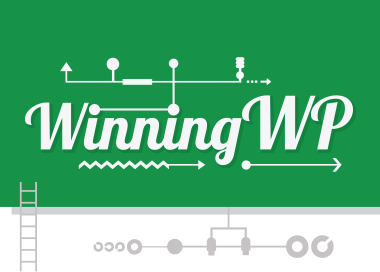

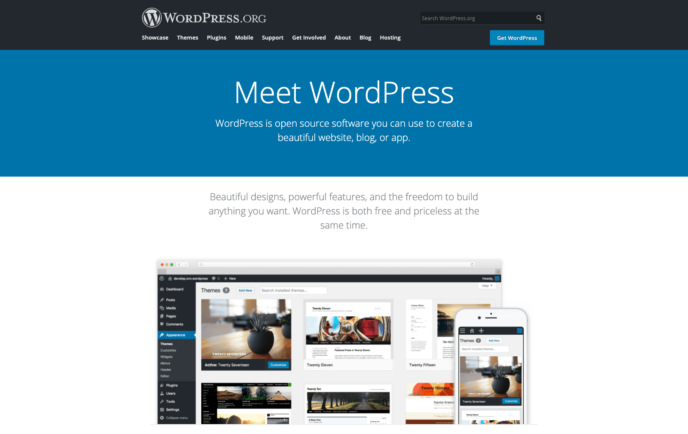
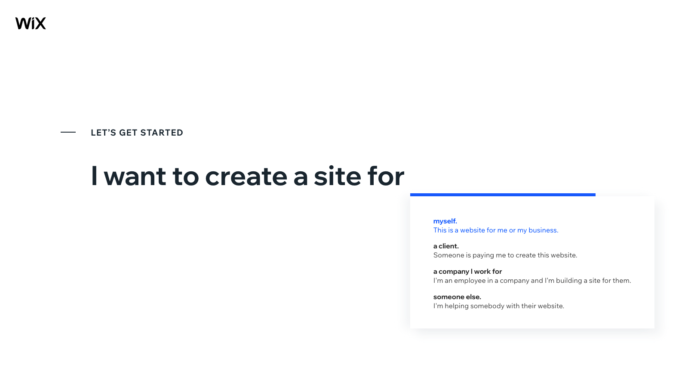
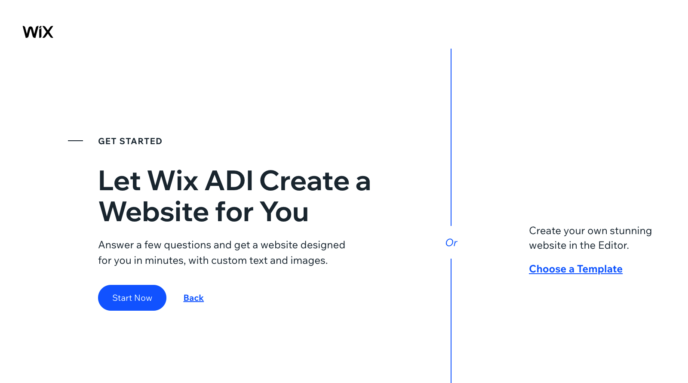
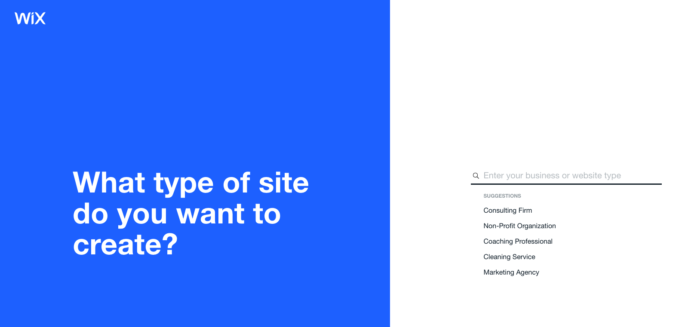

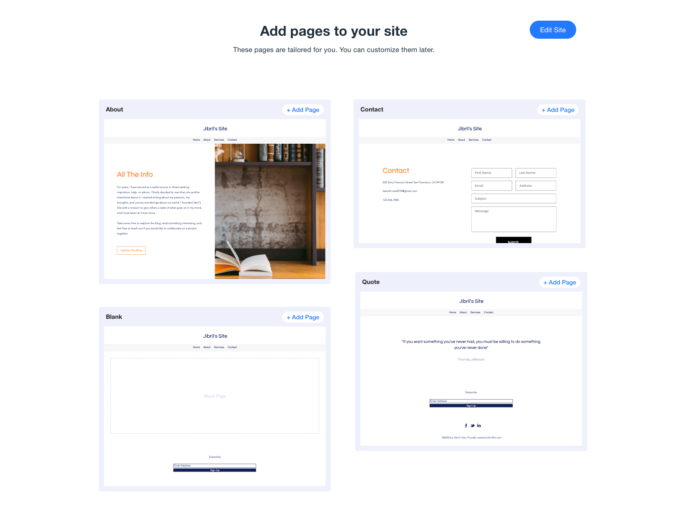
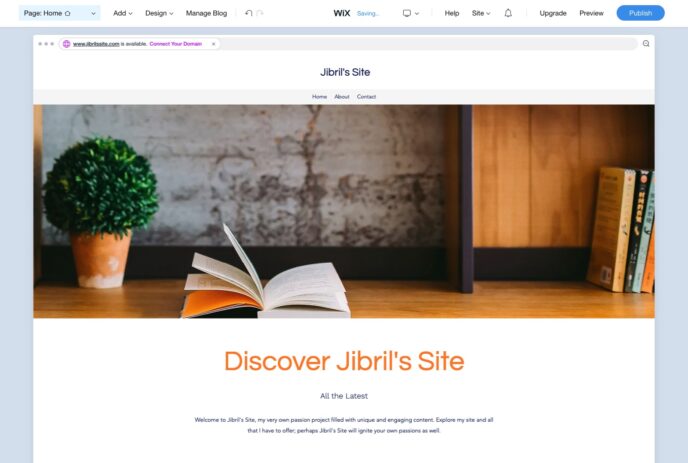
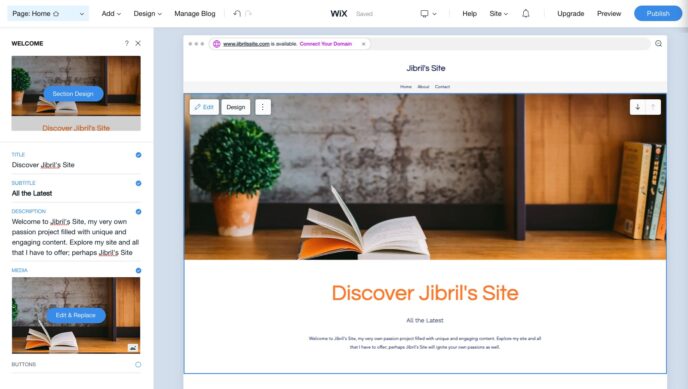
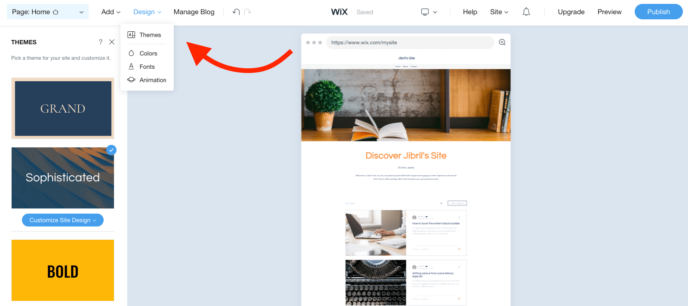
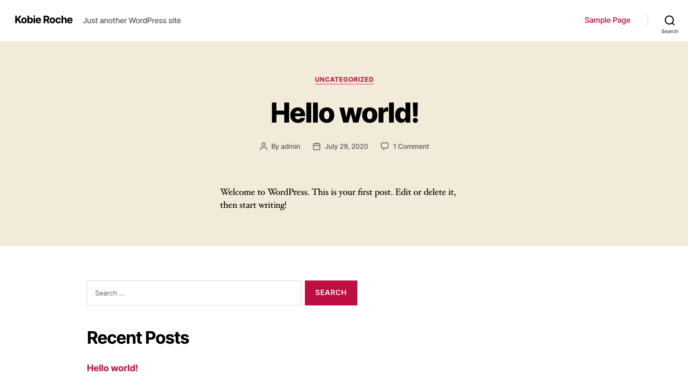
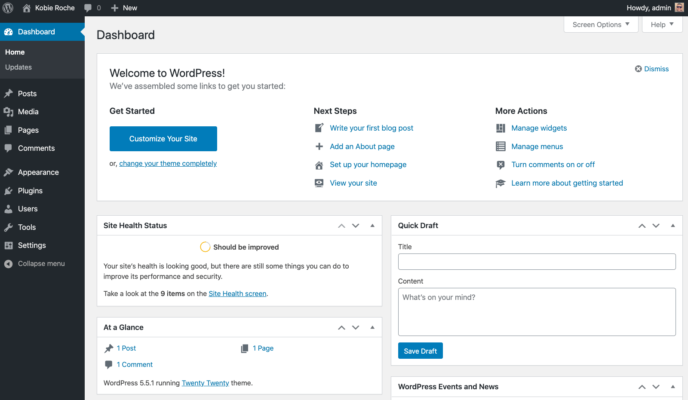
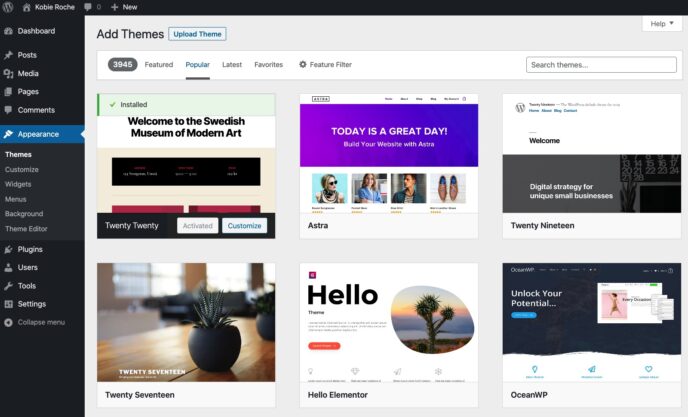
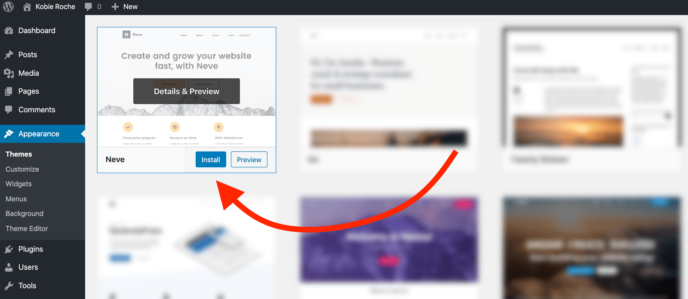
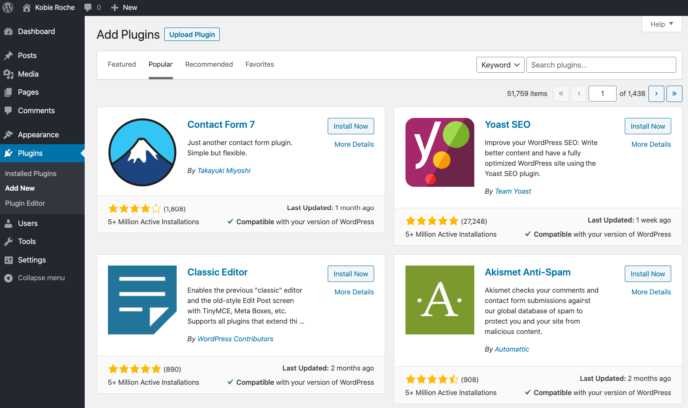
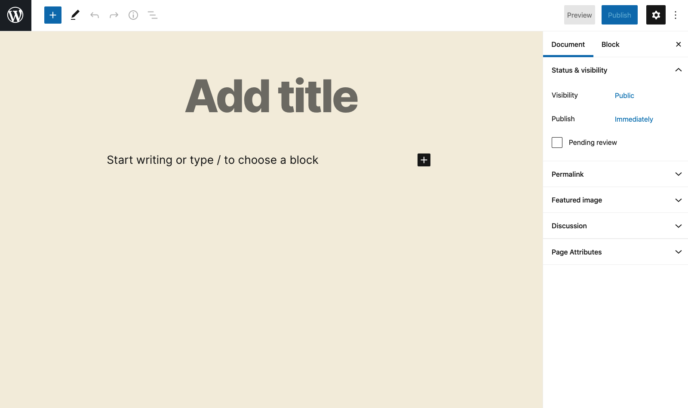
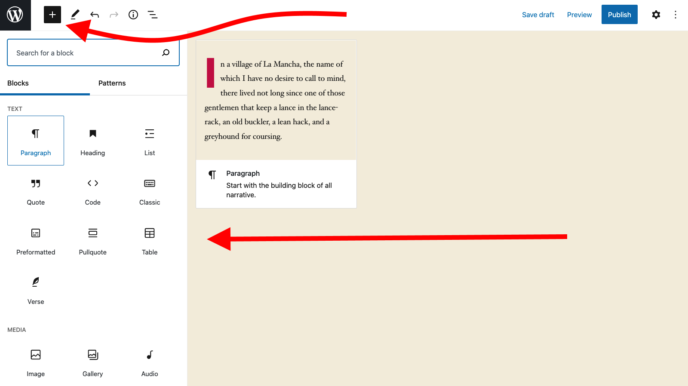
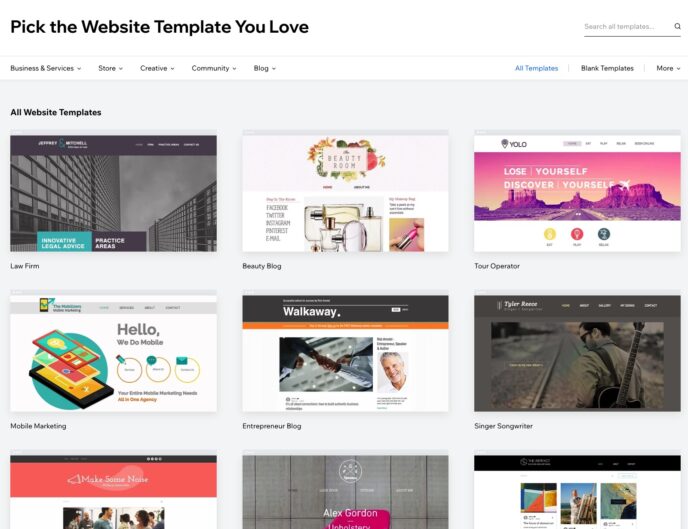
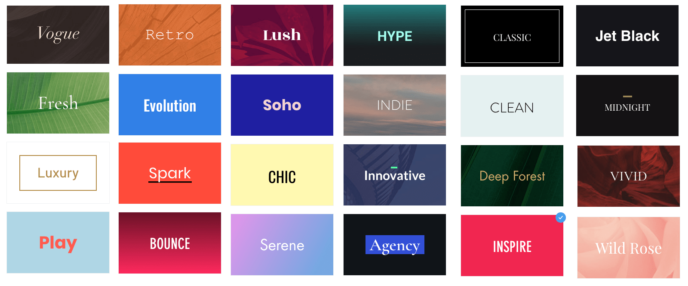
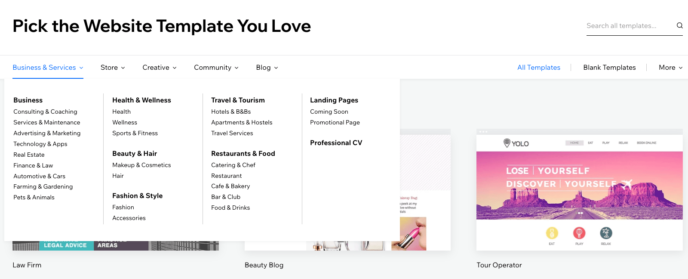
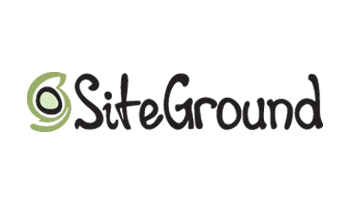

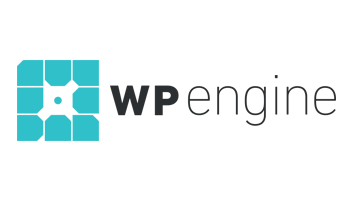
Well, if you like WordPress that’s nice. I don’t have time to learn all the coding for WordPress.
My research has shown that Wix is the top website drag and drop platform. If you still think Wix is inferior to WordPress then you only know the “old” Wix and your knowledge of the Wix platform is way outdated. The Wix platform has improved tremendously over the last 5 years and continues to improve. Even if Wix is not your choice, there’s still a lot of other competition out there for WordPress. Many WordPress specialists I’ve talked to recommend Wix as a WordPress alternative.
I do use WordPress for some of my clients even though every time WordPress has to be installed every time there’s a new version which then leads to other work on websites. Why can’t new versions be implemented to existing websites “in the background”? Evidently the recent version 5.5 of WordPress caused a lot of problems for many websites and another sub-version 5.5.1 had to be developed and installed. Interesting. Yet WordPress is still supposed to be the best platform.
Thanks for the details, and the winner, in my mind … is … WordPress.
Have been working with it for years in an educational setting too.
About to launch another site around Ent Tech.
Nicely written and appreciated.
Cheers
I have been working on websites that I have built in either WordPress or Wix. I get frustrated with WordPress and sometimes it doesn’t seem as user friendly. For one thing every time there’s an update in WordPress, users have to update WordPress on their computer. Wix updates in the background.
WordPress or Wix? WordPress is the website platform of choice by most website designers and developers but I have read many reviews about website platforms and Wix is rated the best of drag and drop website building platforms.
Everyone is entitled to their own opinion
Manage WP gets over this and makes it easy to manage multiple sites I manage about 50 sites and it doesn’t cost a penny and never have any problems.
I purchased a 2 year membership from WIX to create my first website because I heard so much positive feedback. It turned out that WIX is a nightmare for me. I could not reach the tech support. There is no phone number to call at all, and all the FAQs and preset robotic text replies were not helpful. Very frustrated. Not sure if I could back out and ask for refund for the rest of the 18 months fees.
Why I feel like the facts about Wix is also the facts about WordPress where actually WordPress is winning (for me).
Once I learn how to make a website using Wix because (wordpress is too mainstream), but not surprisingly, I go back to wordpress because I need the back-end editor. (but Wix editor is cool)
“Wix just seems to be a more user-friendly eCommerce solution than WordPress.” Okay I never try this. And I dont want to out from my comfort zone thats why i stick to woocommerce. (maybe im just complicated)
One i like about wordpress, i can build a website at localhost. just download from wordpress dot org and youre good to go.
Whatever reason, i choose WordPress!
Thanks for the clear information :) I was debating between godaddy (where hosting and domain are located) and wix for my blog with commerce potential. Now I’m going to look more deeply into WordPress as I appreciate it being autonomous and learning it’s still the best for blogging. Still so much to learn. Yikes! but thanks much for the detailed overview.
Lisa,
Did you decide? I’m in the same boat you were back in February. :)
I’ve tried WordPress. I don’t like it. In fact I hate it.
I use another highly rated platform. I have developed my skill well on this platform. I have control. This platform allows users to design and customize a website any way they want. I find that WordPress is restricting and not as flexible.
WordPress isn’t the only platform for developing websites.
hey Doreen, could you please share the platform’s name?
I found that wix is probably the more userfriendly option but it comes at a price in that it is nowhere near as flexible as wp.
Although there is no direct wp support as such, because it is powering such a huge amount of websites, there is tonnes of help available just be searching for it (youtube tutorials for example)
wp does require a bit more knowledge but in return the options are almost limitless.
Many hosting services these days will give you a domain + wp support at a very low cost so for me that was a no brainer. Compairing on price is hard as there are so many factors playing in, but I would pick wp any day.
If there is a price gap at the end of the day of say 20-40 USD per year, quite frankly who cares
I have been using Wix to create and design websites for several years and have seen a lot of changes in Wix to make it better all the time. It has a huge variety of website templates (over 500 templates) which can be customized to a user’s preference plus Wix provides a wide selection of applications (over 300) that can be integrated into a website. Wix Corporation automatically updates the platform; users don’t have to download every time there is an update as they would have to download updates for WordPress. I have also taught my clients some of the basics for editing and adding content to their website. My clients like that Wix is a user-friendly platform, versatile, and SEO-ready. The help center covers anything you need to know about how to do something to make a website the way the user wants it. It’s very seldom, if ever, that a user needs to contact Wix for help with Wix features or applications.
I notice someone asked about Wix taking down a site at any time. I have never seen this done by Wix for my own website or any my clients’ websites. I and my clients have a website with one of Wix’s website plans and the only time Wix might possibly take down a website is if it is a free site. It’s much more secure to select one of their website plans.
Some years ago I built an elaborate website with Wix, not realizing that it was a virtual website building platform, that can be shut down without prior warning or notice. After discovering this, I attempted to do a backup of my website, in case I got shut down by accident, or decided to go with another hosting company later on.
I then discovered that this was not possible, because the platform only allows you to build virtual pages which are not downloadable. I had to go through the painful process of starting all over again with a true website building platform. I soon discovered that the majority of website building platforms, operate just like Wix, in that they DO NOT allow you to save or keep or what you create outside of their platform.